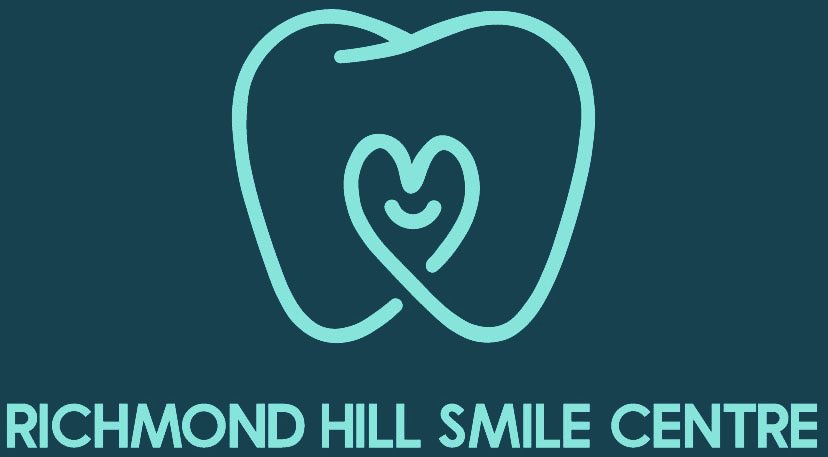Charcoal can help whiten teeth, but results vary. It’s not a guaranteed solution and may cause enamel wear.
Charcoal has become a popular ingredient in dental care products, touted for its ability to whiten teeth naturally. Many people seek brighter smiles and consider charcoal as an alternative to traditional whitening methods. Activated charcoal is believed to absorb stains and toxins, making it a favored choice among natural health enthusiasts.
However, its effectiveness remains debated among dental professionals. Some studies suggest that while charcoal may lift surface stains, it doesn’t change the natural color of teeth. Concerns also exist regarding its potential to wear down enamel over time. Understanding the risks and benefits of using charcoal for teeth whitening is essential for making informed choices.
Introduction To Charcoal In Oral Hygiene
Charcoal has a long history in oral hygiene. Ancient cultures used it for various health benefits. Egyptians and Greeks valued charcoal for its cleansing properties. It helped in whitening teeth and freshening breath.
Today, many modern products include charcoal. Toothpaste and powders often feature activated charcoal. These products claim to remove stains and whiten teeth. Users enjoy a natural alternative to traditional whitening methods. However, scientific evidence varies on their effectiveness.
| Type of Product | Benefits |
| Charcoal Toothpaste | Stain removal and breath freshening |
| Charcoal Powder | Whitening and detoxifying |
| Charcoal Strips | Convenient whitening option |
The Claim: Charcoal For Teeth Whitening
Many people believe that charcoal can whiten teeth. The idea is that charcoal absorbs stains. This process is thought to make teeth look brighter and cleaner.
Charcoal products are popular on social media. Many users share their experiences and results. This trend has led to a rise in marketing for these products.
Some brands promote charcoal toothpaste and powders. They claim these items are safe and effective. However, scientific evidence is limited.
While some users report improvements, results may vary. Consulting a dentist is a wise choice before trying charcoal products.
Scrutinizing The Evidence
Many people wonder if charcoal can whiten teeth. Some scientific studies suggest it might help. Charcoal is believed to absorb stains. Yet, research on its effectiveness is limited. Most studies lack strong evidence. Many experts urge caution when using it.
Dentists have mixed opinions about charcoal. Some say it may help with surface stains. Others worry it can be too abrasive. This abrasion may wear down tooth enamel. Enamel is important for strong, healthy teeth. Regular use of charcoal could lead to dental problems.
Choosing safe and effective whitening options is essential. Always consult a dentist before trying new products. They can recommend the best methods for your smile.
Pros Of Using Charcoal
Charcoal has gained popularity for its potential benefits in oral health. Many believe it can help whiten teeth and remove stains. Using charcoal is often affordable and easy to find. Many stores sell charcoal toothpaste or powder. People can also find it online with a simple search.
Using charcoal may help absorb toxins and bacteria in the mouth. This can lead to fresher breath. Some users report a brighter smile after regular use. It is essential to use charcoal products properly to avoid damaging enamel.
| Benefit | Description |
| Whitening | May help remove surface stains on teeth. |
| Fresh Breath | Can absorb odors and bacteria. |
| Affordability | Often cheaper than other whitening products. |
Cons Of Using Charcoal
Using charcoal can have some serious downsides. One major concern is the risk to enamel. Charcoal is abrasive and can wear down the protective layer of teeth. This may lead to sensitivity and increased decay.
Gums can also suffer from charcoal use. The rough texture may cause irritation and even bleeding. This can make dental hygiene more challenging and painful.
Another issue is the lack of fluoride in charcoal products. Fluoride helps strengthen teeth and prevent cavities. Without it, the risk of decay increases significantly.
Many people prefer products that combine charcoal with fluoride. This can help balance the whitening effects with protection. Always consult a dentist before starting any new dental routine.
Comparing Charcoal To Traditional Whitening Methods
Charcoal is a popular choice for teeth whitening. Many people compare it to traditional methods. Whitening toothpaste and strips are common products for brightening smiles.
Whitening toothpaste contains special ingredients. These help remove stains and brighten teeth. Strips are easy to use and provide quick results. They usually contain peroxide, which lightens teeth effectively.
| Method | Effectiveness | Time to See Results |
| Charcoal | Variable | 1-2 weeks |
| Whitening Toothpaste | Moderate | 2-4 weeks |
| Whitening Strips | High | 1-2 weeks |
Professional dental treatments offer the best results. Dentists use stronger agents to whiten teeth. These treatments can brighten smiles significantly in a short time.
Complaints And Warnings
Some users experience sensitivity after using charcoal. Others report gums irritation or discomfort. It’s important to use charcoal products sparingly. Always consult a dentist for personalized advice on dental health.
Making An Informed Decision
Choosing safe whitening products is important for your dental health. Charcoal has become popular for teeth whitening. Some people believe it can help brighten smiles. Always check if the product is safe for use. Look for products with the ADA Seal of Acceptance. This seal shows they have been tested for safety.
Consulting with a dental professional is wise. They can recommend the best products for you. A dentist can also check your teeth for any issues. Regular dental check-ups help maintain oral health.
| Tips for Choosing Safe Products | Benefits of Consulting a Dentist |
| Look for ADA-approved products | Receive personalized recommendations |
| Avoid harsh ingredients | Identify any dental issues |
| Read reviews and ratings | Ensure safe whitening methods |
Conclusion: The Verdict On Charcoal For Teeth Whitening
Charcoal has gained popularity for its teeth whitening claims. Many people wonder if it really works. Studies show mixed results about its effectiveness. Some users report whiter teeth, while others see no change.
Charcoal may help remove surface stains. It works like a gentle abrasive. Overuse can damage tooth enamel, leading to more problems. Dental experts suggest caution with charcoal products.
| Pros | Cons |
| May remove surface stains | Can damage enamel |
| Natural ingredient | Mixed scientific evidence |
The future of charcoal in dentistry looks uncertain. More research is needed to understand its effects. Many dentists recommend safer options for whitening teeth.
Richmond Hill Smile Centre: Your Trusted Partner in Emergency Dental Care
When a dental emergency strikes in Richmond Hill, Richmond Hill Smile Centre is the clinic you can rely on for top-tier care. Conveniently located at 10157 Yonge St Unit 101, Richmond Hill, ON L4C 1T6, Richmond Hill Smile Centre is known for its prompt, compassionate, and expert handling of dental emergencies. Whether you’re dealing with a severe toothache, a broken tooth, or another urgent dental issue, the skilled team at Richmond Hill Smile Centre is ready to assist you.
Contact Richmond Hill Smile Centre at +1 647-362-4755 or via email at info@richmondhillsmilecentre.ca to receive the immediate care you need. Their dedicated team is committed to providing quick and effective treatment to alleviate pain and protect your dental health.
Frequently Asked Questions
Does Charcoal Really Whiten Teeth?
Yes, charcoal can help whiten teeth. Activated charcoal adsorbs stains and impurities from teeth. However, results can vary among individuals. It’s essential to use it correctly to avoid damaging enamel. Always consult a dentist before trying new whitening methods.
Is Activated Charcoal Safe For Teeth?
Activated charcoal is generally safe for occasional use. However, excessive use may erode enamel and lead to sensitivity. It’s crucial to maintain a balanced oral hygiene routine. Consider using it alongside fluoride toothpaste for better protection. Always consult a dental professional for personalized advice.
How Often Should I Use Charcoal For Teeth Whitening?
For best results, use charcoal once or twice a week. Overuse can harm your enamel and lead to dental issues. Monitor your teeth’s sensitivity and overall health. If you notice any adverse effects, reduce frequency or stop using it. Always follow up with regular dental care.
Can Charcoal Replace Regular Toothpaste?
Charcoal should not replace regular toothpaste entirely. It lacks fluoride, which is vital for cavity prevention. Use it as a supplement to your dental routine. Maintain daily brushing with fluoride toothpaste for optimal oral health. Always prioritize professional dental advice for your specific needs.
Conclusion
Charcoal may offer some whitening benefits, but results can vary. Its abrasive nature could harm enamel if used excessively. For optimal oral health, consider safer alternatives. Always consult with a dentist before trying new whitening products. Maintaining regular dental hygiene is essential for a bright, healthy smile. Choose wisely for lasting results.



